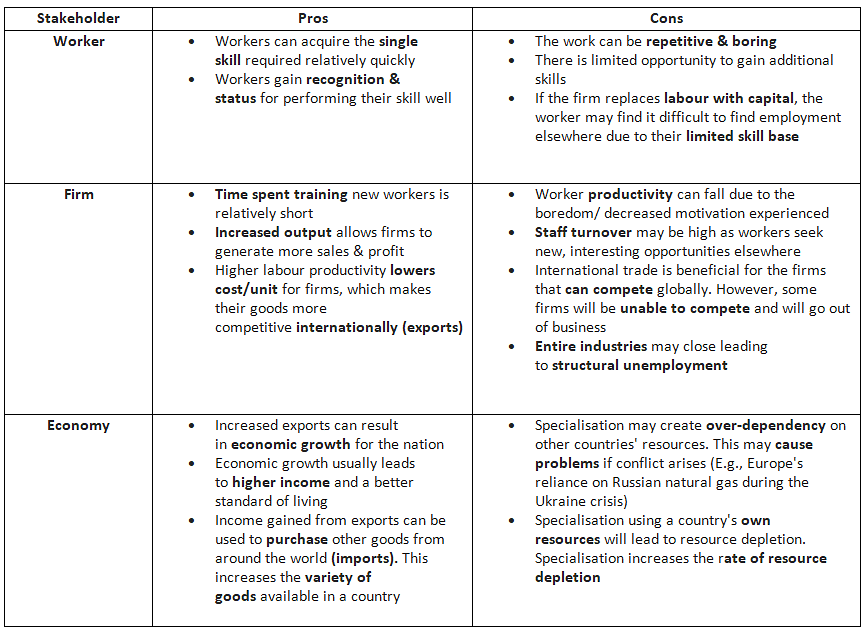Year 11 Exam > Year 11 Notes > Economics for GCSE/IGCSE > Division of Labour & Specialisation
Division of Labour & Specialisation | Economics for GCSE/IGCSE - Year 11 PDF Download
An Introduction to the Division of Labour & Specialisation
- From his observations at a pin factory, economist Adam Smith developed the concepts of specialization and the division of labor.
- He found that a single worker could only produce about 20 pins a day due to the numerous processes involved, like wire cutting and head stamping.
- By dividing labor into specific tasks and having workers specialize in them, Smith estimated that just 10 workers could produce 48,000 pins daily.
- The division of labor involves breaking down a task into various component tasks.
- This enables workers to specialize in specific components of the production process, leading to enhanced skills and higher productivity.
- Specialization occurs at various levels:
- At an individual level.
- Within businesses, such as firms specializing in manufacturing specific products like drill bits.
- Regionally, like Silicon Valley's specialization in the tech industry.
- Globally, as countries specialize in certain industries for international trade, like Bangladesh specializing in textiles.
Question for Division of Labour & SpecialisationTry yourself: What is the purpose of the division of labor?View Solution
Advantages & Disadvantages for Workers, Firms & The Economy
Pros & Cons of the Division of Labour & Specialisation

The document Division of Labour & Specialisation | Economics for GCSE/IGCSE - Year 11 is a part of the Year 11 Course Economics for GCSE/IGCSE.
All you need of Year 11 at this link: Year 11
|
71 videos|104 docs|48 tests
|
FAQs on Division of Labour & Specialisation - Economics for GCSE/IGCSE - Year 11
| 1. What is the division of labour and specialisation? |  |
Ans. The division of labour refers to the separation of tasks within a company or organization to increase efficiency. Specialisation involves individuals or businesses focusing on a specific task or skill to become more proficient at it.
| 2. What are the advantages of division of labour for workers? |  |
Ans. Workers benefit from the division of labour as it allows them to focus on a specific task, leading to increased efficiency, productivity, and expertise in that area. It can also lead to higher wages and job satisfaction for workers.
| 3. How does the division of labour benefit firms? |  |
Ans. Firms benefit from the division of labour as it can lead to increased productivity and efficiency in production processes. Specialisation allows for the use of skilled workers in specific tasks, reducing training costs and improving overall output.
| 4. What are the disadvantages of specialisation for workers? |  |
Ans. One disadvantage of specialisation for workers is the potential for job monotony and lack of variety, leading to decreased job satisfaction. Additionally, highly specialized workers may face challenges in transitioning to other roles if needed.
| 5. How does the division of labour impact the economy? |  |
Ans. The division of labour and specialisation can boost economic growth by increasing productivity and efficiency in production processes. This can lead to lower costs, higher output, and overall economic prosperity.
Related Searches




















